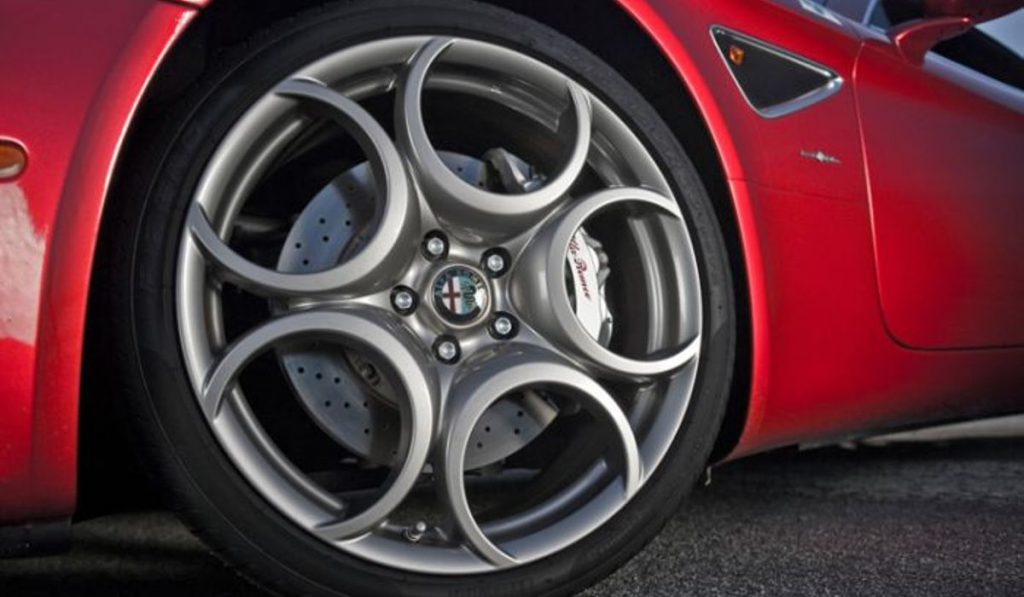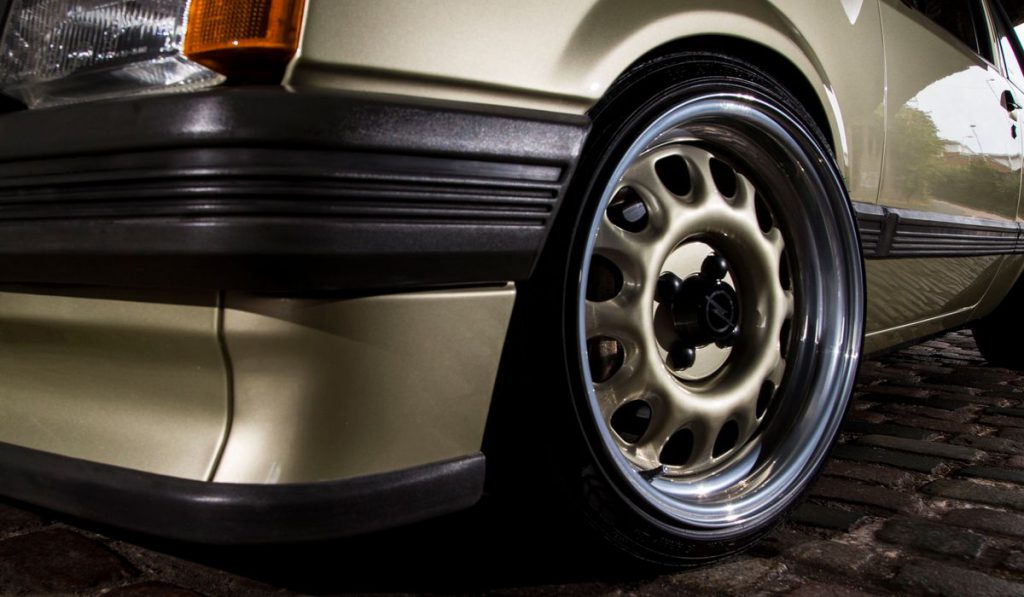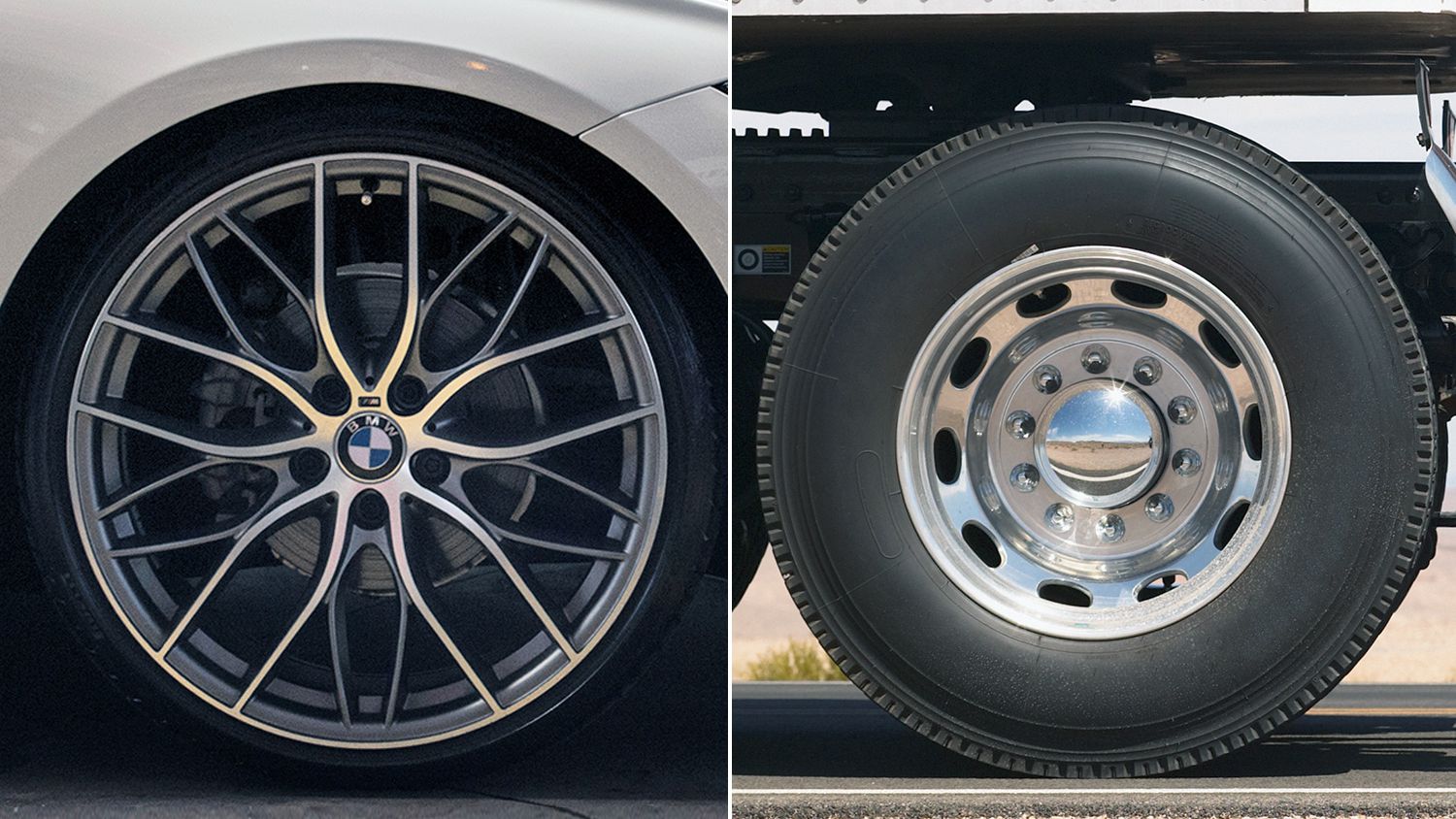Wheels are important parts of a car. To summarize, they are what transmit the power from the engine to the ground, and decide acceleration, braking, and handling capability. They reduce friction and push the car forward while supporting the car’s weight (with suspension and shocks’ help).
There are two main categories of wheels you can choose from: alloy wheels and steel wheels. Each of them has its pros and cons, suitable for different purposes. Then how to choose the right type that allows your car to have the best performance? These are the basic information and differences between alloy and steel wheels that can answer that question.
Contents
Alloy wheels: lighter, prettier, but less durable

Alloy is a metal made from mixing two or more types of metal to combine those metals’ advantages. In this case, it is aluminum mixed with nickel, magnesium, or other metals. Aluminum is used for wheels because it is lightweight and provides a good balance of strength, durability, and cost.
Pros
The first advantage of alloy wheels is that they are much lighter than steel wheels, thus reducing unsprung mass and allowing the suspension to follow the terrain more closely. This improves the grip and allows better handling of the car. Lightweight also helps reduce fuel consumption or can be made in larger diameter wheels (16’’ and up), so they have higher compatibility with many types of car.
Alloy wheels conduct heat better than steel wheels. Better heat conduction and an open-wheel design can aid in the dissipation of heat from the brakes, improving braking performance under more demanding driving circumstances and reducing the risk of brake failure due to overheating.
What makes people lean to alloy wheels when considering the differences between alloy and steel wheels is that alloy wheels have a much better appearance. Alloy wheels are made by forging and casting, so it allows room for multiple styles and intricate designs and offers freedom for customization (finishing, polishing, painting). Although not all alloy wheels are corrosion-proof (cheaper ones do not), but most of them are. This is great news for people in coastal areas where salt and surface corrosion is recurrent.
Cons
The biggest problem with alloy wheels is that they are less durable than steel wheels. They are prone to cracks, dents, and curb rashes. And because of this, even the slightest damage on the wheels can tarnish the overall look of the car. That also leads to another problem: they are harder to repair. Alloy wheels have to be subjected to complex procedures to bring them back to shape. Their cosmetic looks surely don’t help with the repair process.
The price is another disadvantage that you should think about. Expensive to buy, expensive to repair, and expensive to manufacture. Due to the complicated manufacturing process, alloy wheels are quite costly. Because they are less durable, the cost of repair is a part of the problem. This is the reason car manufacturers do not use alloy wheels on low-end budget cars to cut the cost and sometimes offer alloy wheels as an optional add-on or included in trim packages.
SEE MORE:
Steel wheels: heavier, not as pretty, but highly durable

Steel wheels are usually pressed from sheet metal and then welded together. Steel wheels have a long history and have been battle-tested for durability and lifespan. As a result, they can be found in hardcore SUVs, city cars, and even HMVs. They are produced as a low-cost alternative to alloy wheels.
Pros
First and foremost, the durableness. Steel wheels are nearly impossible to crack, and bending one would take enormous power. They will not rust as long as the layer of paint on them is maintained as needed. Steel wheels absorb more shocks and impact and are more flexible than alloy wheels under stress.
Steel wheels naturally look rough and tough, so cosmetic damage is rarely an issue. This also makes repairing a bent steel wheel easier since there’s no fear of damaging the appearance. You can easily revert your bent steel wheel into shape with tools like a hammer.
Another big advantage would be the price. Steel wheels are much cheaper than alloy wheels, in case you need to replace them for some reason, the cost will be significantly lower than the alloy replacement (it is cheaper to repair the wheel than buy a new one). The options are limited because steel wheels all have that rough look but there are many wheel covers available for you if you want to improve the look a bit.
Cons
The biggest difference between alloy and steel wheels is that they are not as pleasing to look at as alloy wheels. Since they are made by pressing and welding metal sheets, that often leaves unsightly bumps on the wheels. Though you have paint and wheel covers to make them better, they still don’t have that intricate and fancy look like alloy wheels, the designs for them are limited.
Steel wheels are heavy, which adds to the car’s unsprung weight. After a while, the extra weight of steel wheels takes its toll on the suspension. However, being overweight is not always a bad thing, because it can provide better traction and maneuverability. During the winter, the extra weight of steel wheels is advantageous as the increased friction will aid in preventing your vehicle from slipping on the ice and snow. For this reason, and to keep their alloy wheels in the best possible condition, many owners will switch to steel wheels when the weather outside turns bad.
Other than that, steel wheels have low compatibility with vehicles not made for them. It is not recommended to use steel wheels on a vehicle designed for alloy wheels. Steel wheels are also limited in size, as most are made with 16′′ or smaller rims.
Conclusion
Steel is durable, inexpensive, and ideal for driving on rough terrains. Steel keeps your vehicle on the road, works in all weather conditions, and is much more resistant to impact, shocks, and stress. Alloy is better suited for agile high-performance driving, as well as being more stylish and appealing for show cars or customizations.
I hope this article satisfies your question about the differences between alloy and steel wheels. You can follow Maintenance Tips for more interesting information and how to keep your car in tip-top shape!



